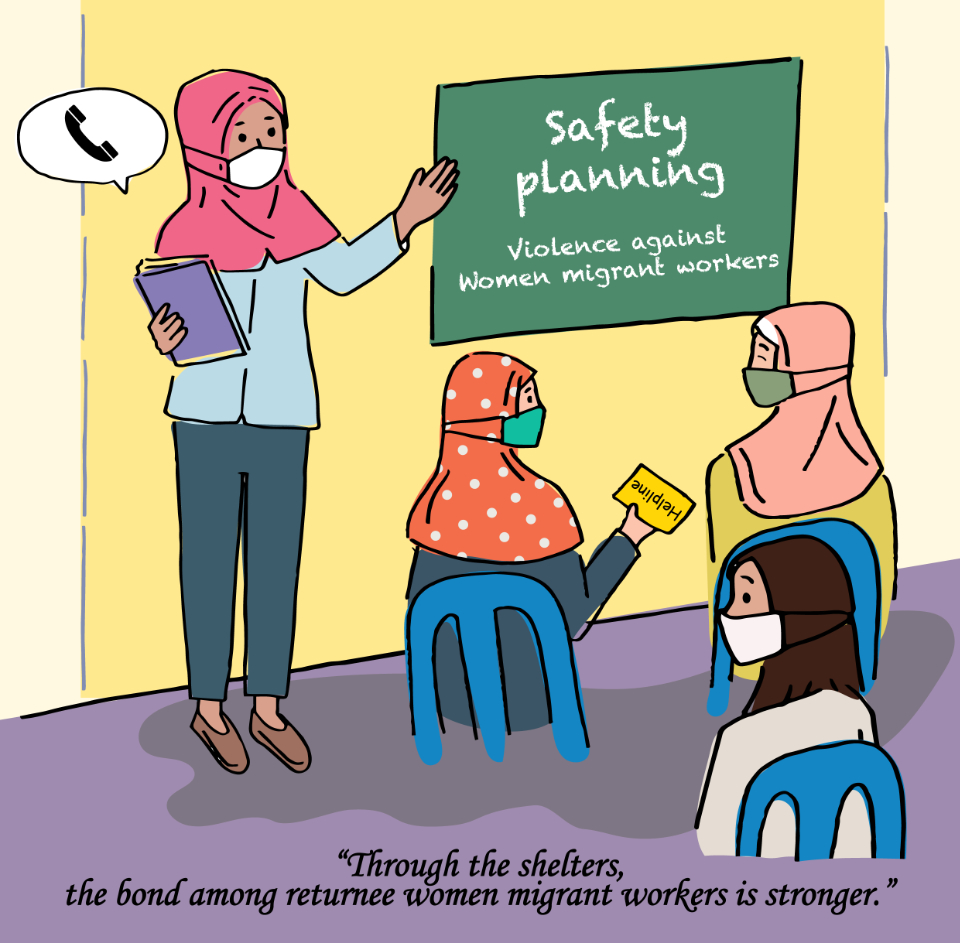“Through the shelters, the bond among returnee women migrant workers is stronger.”
Interview with Rara Saraswati, Assistant at Rumah Perlindungan Trauma Center (RPTC; House of Protection and Trauma Center) in Bambu Apus Jakarta.Date:

RPTC is a state-run center for migrant workers especially those who are survivors of trafficking in persons, under the Ministry of Social Affairs. RPTC runs a shelter for survivors, provides medical care, psychological support including psychological assessments and counselling, organizes life skill training for Indonesian migrant workers and coordinates referrals to relevant institutions as needed.
Rara: I provide psychosocial support to the survivors of violence at the RPTC, guide them about the procedures in the centre and coordinate with other essential service organizations. When I first started my job, I questioned my capacity. I worried that I couldn’t give the full emotional support to survivors of violence. However, as soon as I started my work, I realized that it is my passion to speak to the survivors to make them feel supported. Also, I was professionally trained on how to communicate with survivors.
Luckily, the services of RPTC could continue despite the COVID-19 pandemic. However, our resources have been reduced, and the number of officers who could stay in the shelter was cut in half. Of course, everyone in the centre must wear masks and wash their hands constantly. At the beginning of the pandemic, we were concerned about having enough Personal Protective Equipment (PPE) to keep the centre open, but we could still continue our services thanks to contributions from our partners including the Safe and Fair Programme.
It is common for survivors in the shelters to create a supportive environment. Peer support is key. We organize group therapy sessions and rehabilitation activities, but I would say these days, during COVID-19, the bond among them is stronger than before. I saw returnee women migrant workers in the centre comforting each other, sharing tips and supporting each other as they go through this challenging time. I saw them sharing the Safety Plan postcard from the Safe and Fair Programme with each other, keeping themselves informed about what measures to take in case of violence. I hope this will empower them to better protect themselves in the future. I am so happy when I see smiles on our women migrant workers’ faces. My wish is for them to take care of themselves and their families, and be free from both COVID-19 and violence.
The ILO-UN Women programme “Safe and Fair: Realizing women migrant workers’ rights and opportunities in the ASEAN region”, under the global EU-UN Spotlight Initiative to eliminate violence against women and girls, supports front-line service providers to ensure essential services are available for women migrant workers who are subject to violence. More: www.spotlightinitiative.org/safe-and-fair
More contacts of service providers are available in the Service Directory for Women Migrant Workers in the ASEAN region: https://bit.ly/services4wmw
Interviewed by Nunik Nurjanah
Written by Younghwa Choi
Edited by Gihan Hassanein